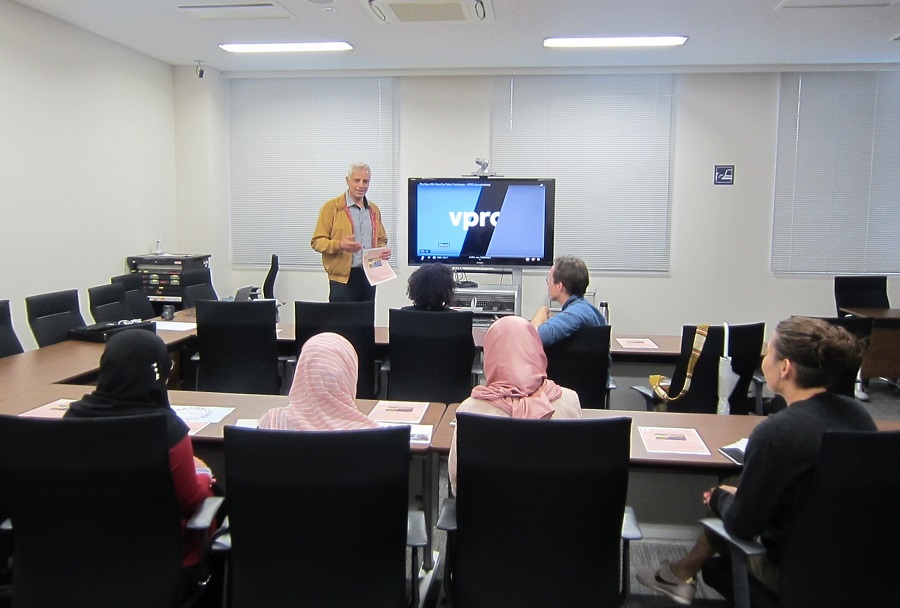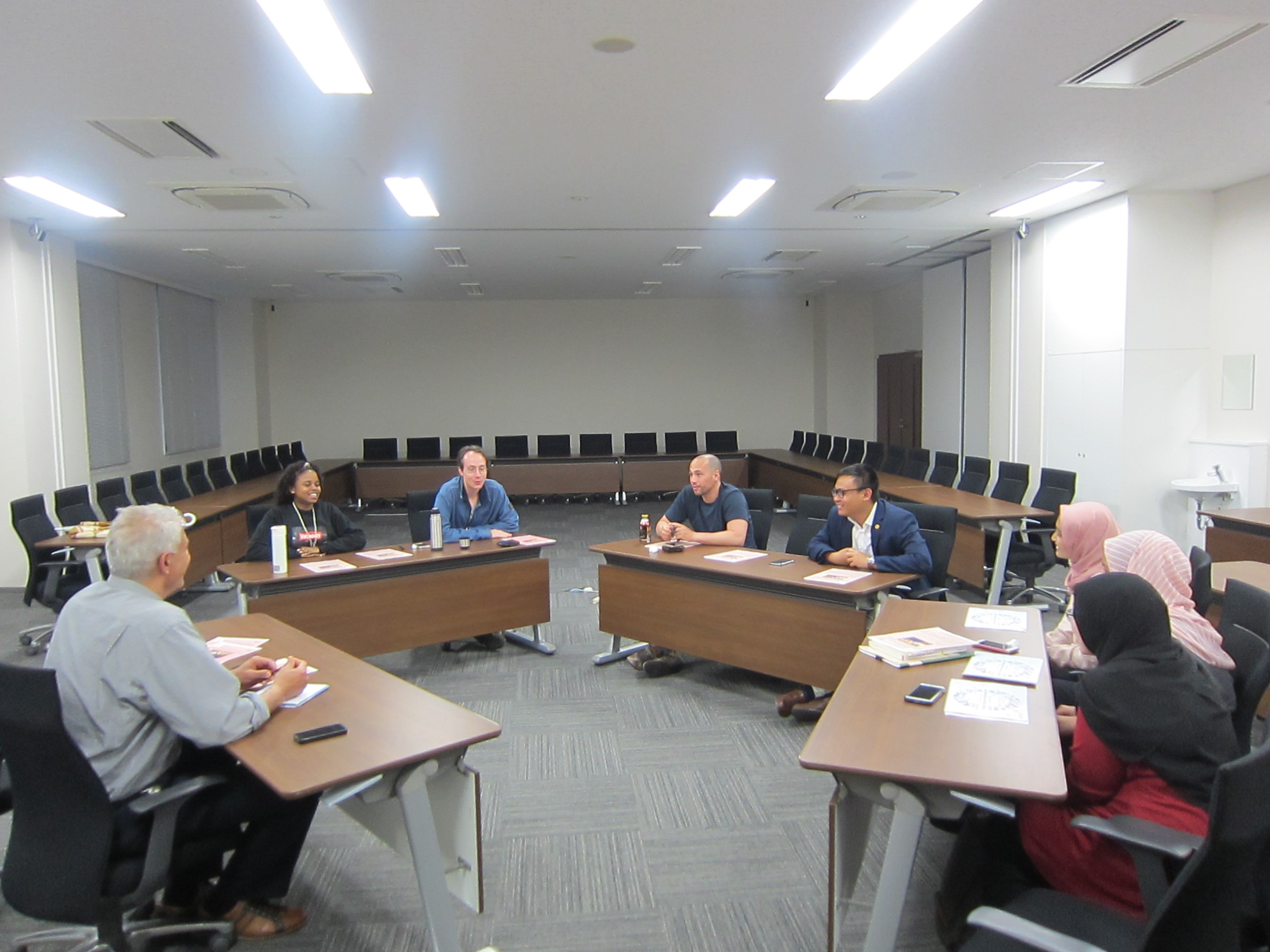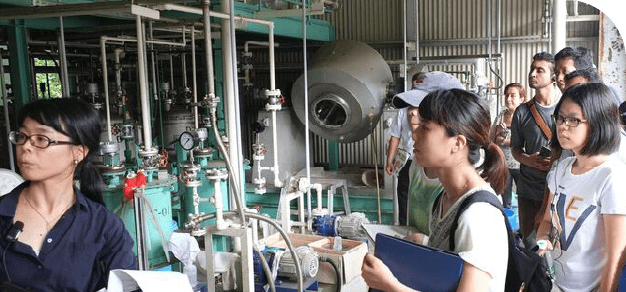Recent Activities
GRM Monthly Documentary Film Event - April
2019/04/26
A documentary film event was held on Thursday, 25 April 2019.
We watched a film, titled
“The New Silk Road by Peter Frankopan”
----------------------------
Date: Thursday, 25 April 2019
Time: 17:30 P.M.-19:30 P.M.-
Venue: Meeting Room, Shikokan Building, Karasuma Campus
----------------------------
■Commentary
Written by Iyas Salim
For those keen on further understanding of globalization, the film is attempting to explain in a rather sweeping way the dynamics responsible for shifts of global powers and the changing political currents, primarily coming from the east. At the center of it all is China, as the film provides how economic power is shifting to the east, providing details on ongoing economic activities and projects encircling vast regions across the globe. The film’s host, Peter Frankopan, shows in the “New Silk Roads” China and a many of central Asian countries are working on integrating and connecting their economies. For example, Iran provides about one third of its oil to India. Afghanistan is building a pipeline into Pakistan and India. On the border of China-Kazakhstan, a “land port,” at Khorgos, is serving as a mega distribution center of goods, covering a network of over 1300 KMs, connecting sea ports from afar to a new seaport on the Caspian coast of Turkmenistan.
The old Silk Road is being cultivated and heavily invested for the past twenty five years. Kyrgyzstan and Kazakhstan cooperate with countries spanning from Belarus, to Russia to Armenia to establish the Eurasian Economic Union. Those countries are engaged with Iran to cement trade deals. Central Asia has been introducing new initiatives; the Bright Road initiative by Kazakhstan, the One Economic Circle of Vietnam, the Middle Corridor initiative of Turkey and the Development Road initiative of Mongolia. Those initiatives certainly reflects the biggest initiative of it all, China’s global connective project, One Belt, One Road initiative.
The film elaborates on China’s One Belt, One Road initiative, as it encompasses more than eighty countries, 63% of world’ population and 29% of the output of global economy. China’s ambition is to connect with its neighbors by land and sea. Clearly, a project at such global scale is accelerating globalization with the locomotive stationed in China. For the past forty years, the world order was mainly dominated by Western neoliberal order which has influenced globalization as we know it today. At this point, however, how a China-lead globalization will look like? The film illustrates this point by quoting the Chinese Primer Xi Jinping on China’s goal to “boost mutual understanding, mutual respect and mutual trust and promote peace and development.” However, observers and critics say policies and behavior of China contradicts Xi’s statement. China is accused of its predatory loan practices in the sub-Saharan Africa. Observers point out when the Chinese government shocked the world by the disturbing way of treating its own Uighur citizens by imprisoning and detaining a million Uyghurs in what Chinese government calls it “re-education camps.”
During the discussion after the film, participants expressed various views related to the themes, introduced in the film. One participant explained that current globalization was moving in a fast pace that national governments seem unable to deal with. In Europe, the political landscape is changing in a dramatic way. Populism is on the rise across Europe as millions of people perceive economic disparity and inequality as a result of uneven globalization. One student from Africa was inspired by the film by seeking to find and read the latest book in which the film was based on; “The New Silk Roads: A New History of the World.” A student from south-east Asia criticized China military show off in the South China Sea, as this region is becoming highly volatile and turning into a potential flash point of an international conflict in the near future.
Imperialism has been part of history, but history also shows that imperialism has never gone unchallenged. Indeed we are perhaps witnessing an epochal shift in our present-day world. New transformative dynamics, besides the known specifics of nation states, are introducing such a shift. The new powers, namely, are manifested in the digital revolution and climate change. Climate change is in the process of causing havoc and distribution at levels never recorded or experienced before. Cycles of unprecedentedly destructive typhoons, storms, draughts, and record-breaking hot summers are becoming part of the daily news across the globe. With rising temperature, draught, desertification, water is poised to become the most precious commodity of all; and China, besides other competing powers, knows this well.






